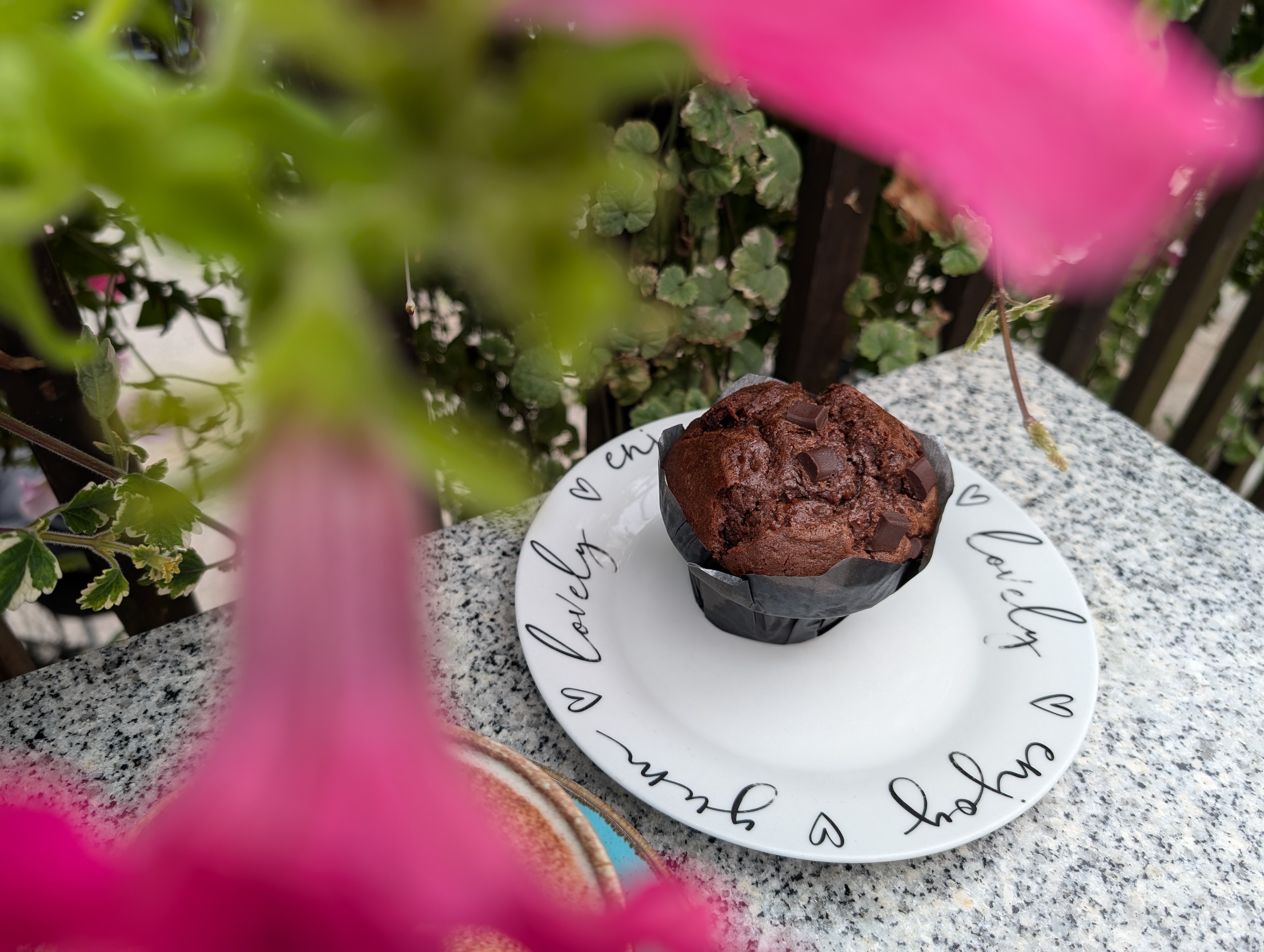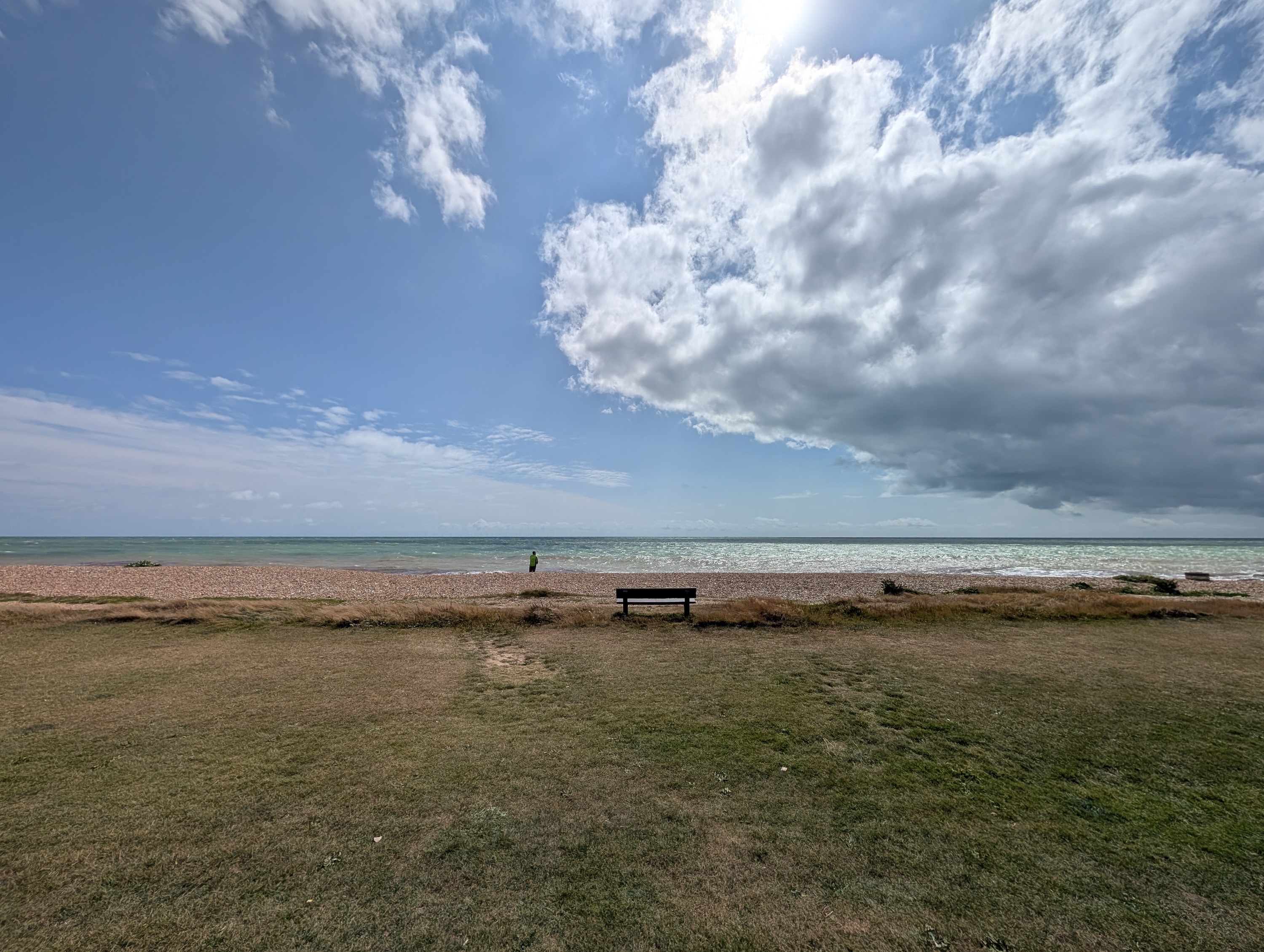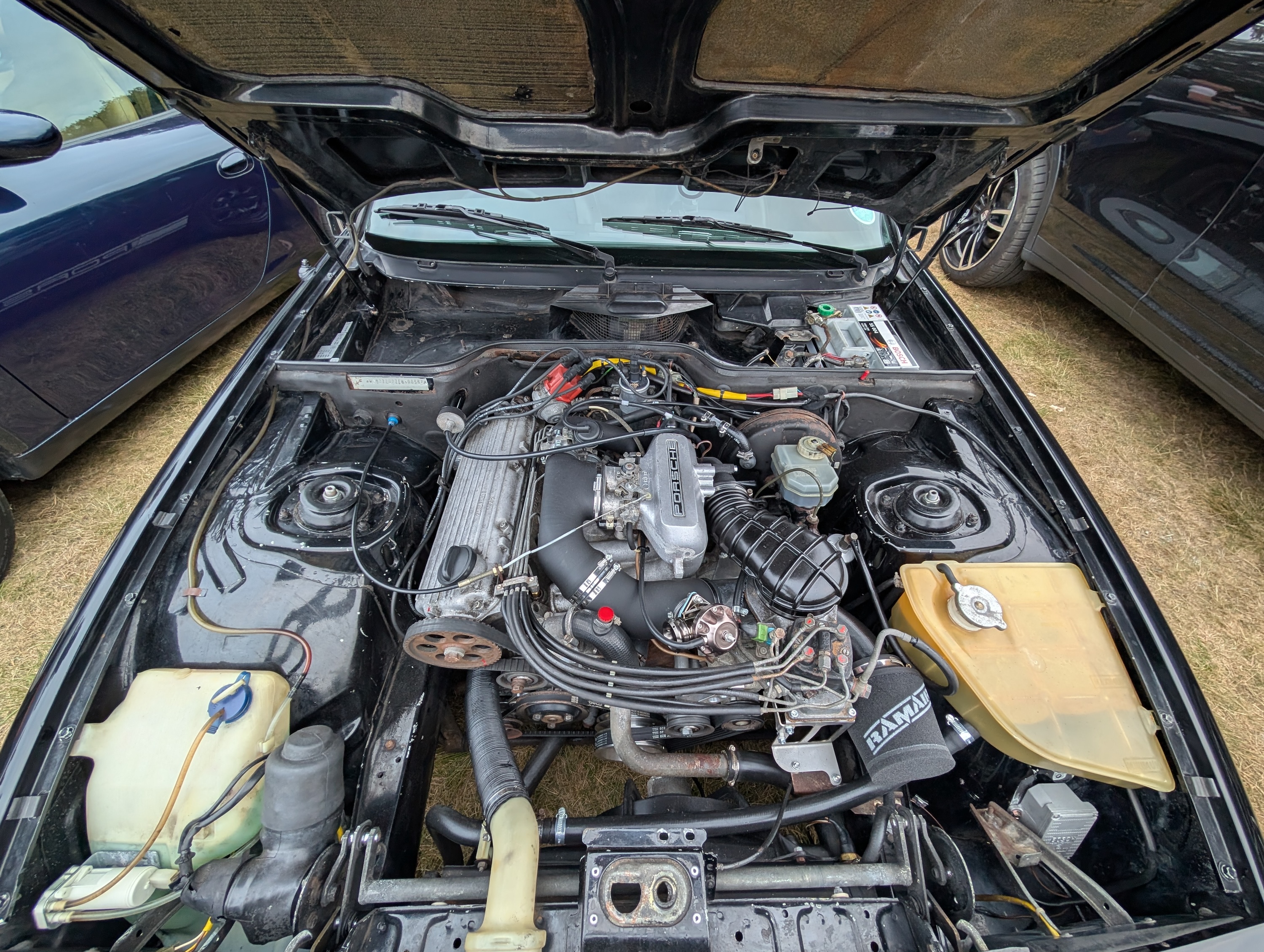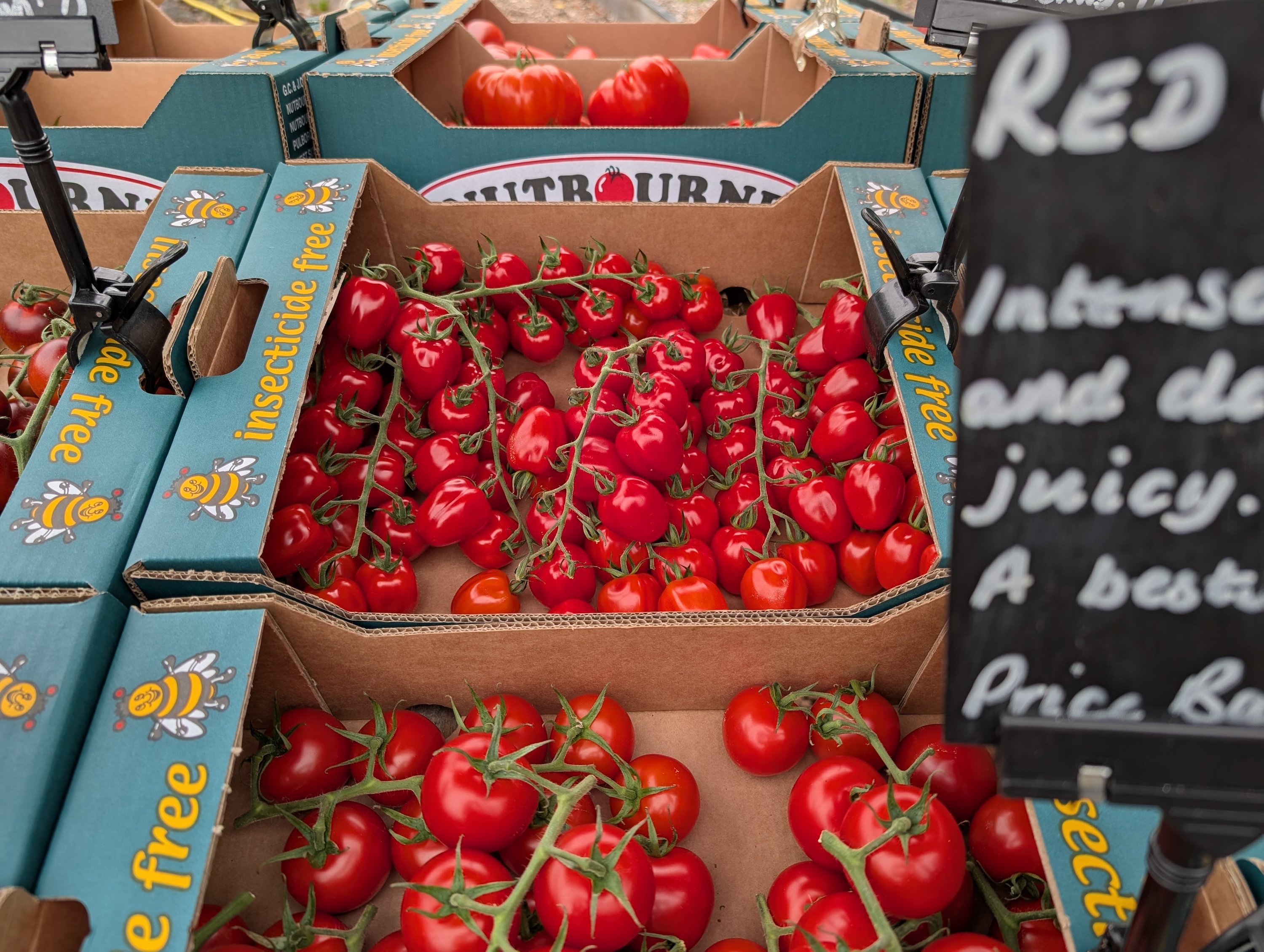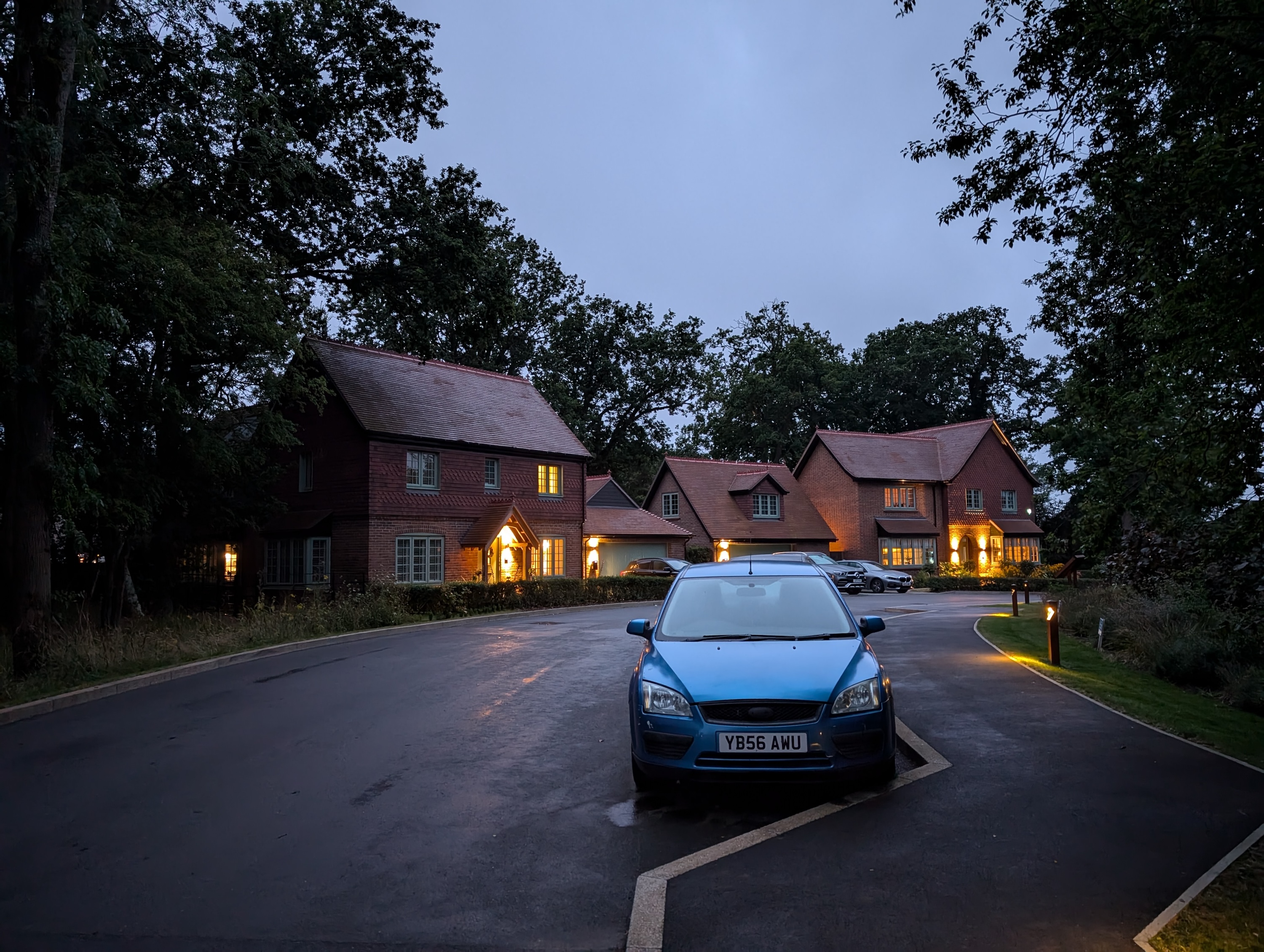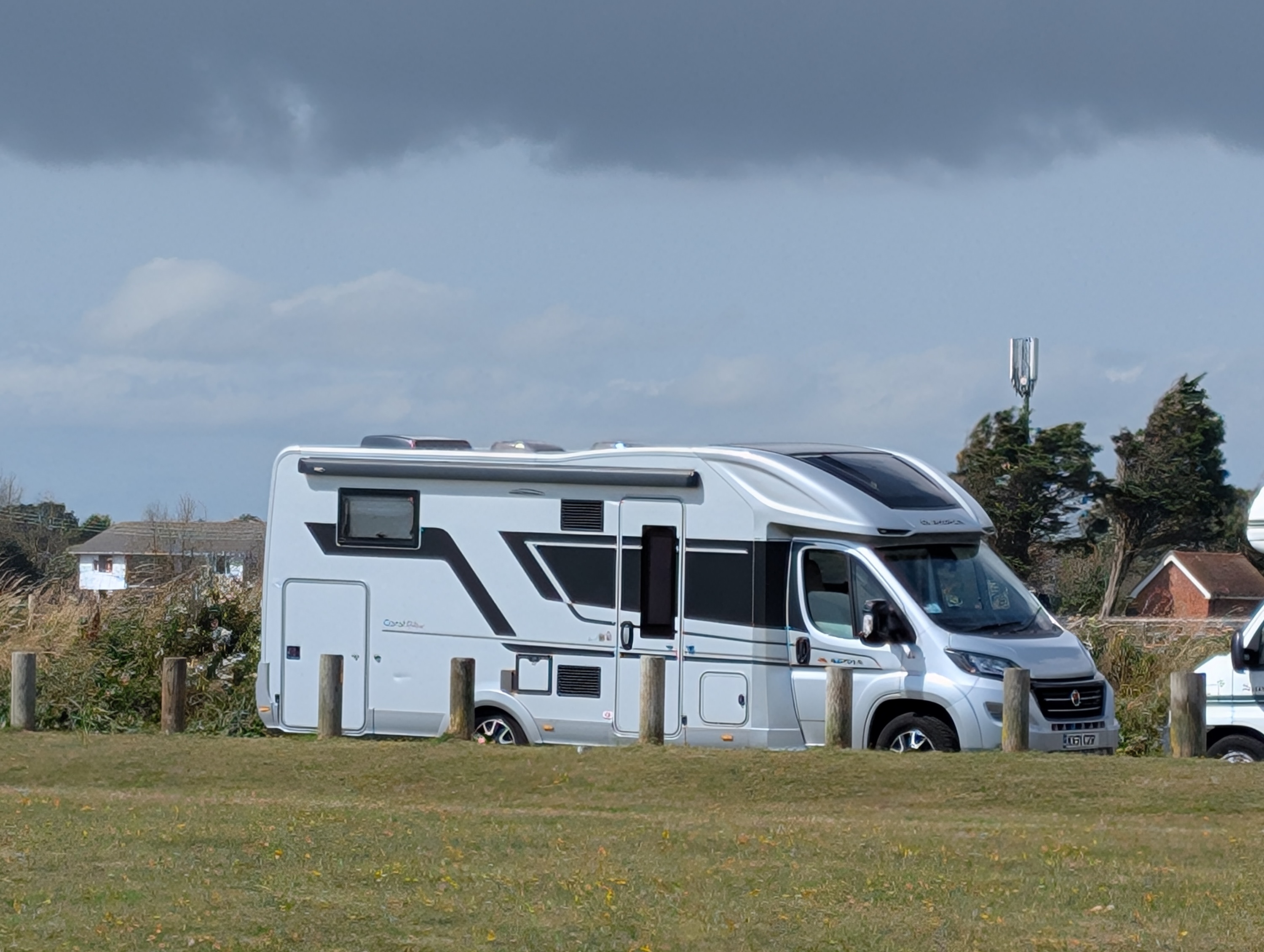“The Google Pixel 9 is one of the best Pixel phones Google has ever made, and it has nothing to do with AI.”
- Excellent design and build quality
- Super camera
- Tactile haptics
- Fast and reliable security
- Improved efficiency and battery life
- Long software update commitment
- Screen isn't always bright enough
- Slow charging
- More expensive than last year
Google made a mistake with the Pixel 9 during its launch event. It said barely anything at all about the hardware, yet when you finally get hold of the phone, you instantly find it borders on the exquisite. So, by only talking about AI for an hour, Google did us all a disservice.
But was all the AI talk justified, and does it elevate the Pixel 9 above and beyond models that have come before it or that challenge it today? I’ve found out by using the Pixel 9 every day.
Google Pixel 9: specs
| Dimensions | 1152.8 x 72.0 x 8.5 mm (6.0 x 2.8 x 0.3 inches) |
| Weight | 198 grams (7 ounces) |
| Display | 6.3-inch Actua OLED display, 1080 x 2424 resolution at 422 ppi, 60-120Hz refresh rate, 1800 nits (HDR)/2700 nits (peak) |
| Durability | Corning Gorilla Glass Victus 2, IP68 |
| Colors | Obsidian, Porcelain, Wintergreen, Peony |
| Processor | Google Tensor G4 |
| RAM | 12GB |
| Storage | 128GB, 256GB |
| Software | Android 14 |
| Updates | Seven years of OS, Feature Drops, and security updates |
| Rear cameras | 50MP main, f/1.68, 82-degree FOV
48MP ultrawide, f/1.7, 123-degree FOV |
| Front camera | 10.5MP with autofocus, f/2.2 aperture, 95-degree ultrawide FOV |
| Battery | 4,700mAh |
| Charging | 30W fast charging (50% in 30 minutes), 23W fast wireless charging, Reverse wireless |
| Price | Starts at $799 |
Google Pixel 9: design

Not only is the Google Pixel 9 the most attractive and well-presented standard Pixel phone yet, but it’s also one of the best-looking smartphones you can buy today. It’s glorious in a way Pixel phones haven’t always been before, as it gets both the aesthetics and ergonomics right, which oddly seems to be quite a challenge for other manufacturers. I don’t think photos do it justice either, as they can’t convey how excellent the phone feels in your hand or how polished and high-quality the hardware itself is.
The satin-finish metal chassis has precisely the right amount of curve to blend in with the flat Corning Gorilla Glass Victus 2 rear panel, making it a joy to hold. The size, for me, is spot-on as I can use it with one hand without feeling like I’m going to fumble it, and it can slip mostly unnoticed into my pocket. It’s as durable as you’d hope, with an IP68 dust and water resistance rating and Gorilla Glass Victus 2 over the screen. The Pixel 9 isn’t slippery, though, and it has plenty of grip from the metal frame.

The fit and finish is fantastic, which, although it should be a given, isn’t always the case with Pixel phones. The Pixel 9 is beautifully made without any hint of misalignment, unwanted ridges, or less than perfect fit. Its stylish, simple design gets its character from the camera module, which has morphed from a visor into a substantial flat-top island mountain on the back of the 9. The stadium shapes used help lessen its visual impact, but there’s no denying its considerable height.
At 198 grams, the Pixel 9 is suitably weighty, but never heavy, so I haven’t found it fatiguing to hold for any length of time. There are several colors available: Porcelain (which I have been using), Obsidian, Peony, and Wintergreen. If I’m forced to pick one thing I don’t like about the Pixel 9’s design, it’s not to do with the phone, but with the official case. It’s very pretty, and I love the soft inner layer, but the outside collects all the dust and lint from your pocket or bag. I’d choose another Pixel 9 case or just enjoy the Pixel 9’s fantastic ergonomics without one.
Google Pixel 9: screen

The Pixel 9 has a 6.3-inch Actua screen with a 1080 x 2424 pixel resolution and a maximum 120Hz refresh rate. Google does set the refresh rate at 60Hz by default, though, so make sure you change this in the settings. Compared to the Pixel 9 Pro and Pixel 9 Pro XL, which feature higher resolutions and a dynamic 1Hz to 120Hz refresh rate, the base Pixel 9 has the lesser screen.
The Pro phones are also brighter, and this is one of the small issues I’ve had with the Pixel 9. The official figures claim 1,800 nits maximum brightness and 2,700 nits peak brightness, but I’ve found it doesn’t get quite as bright as I’d like under normal outside use. Whether it’s the ambient light sensor that needs tweaking or a poor average brightness for everyday situations, I’ve found myself maxing the brightness setting out quite often, yet it’s still not as vibrant and visible as required for the conditions.
Screen brightness is one of the small issues I’ve had with the Pixel 9.
This is really the only negative, though. There’s a very fast and accurate new ultrasonic fingerprint sensor set sensibly high up on the screen, and that’s joined by an instant face unlock feature. It’s the simplest, fastest, and most reliable Pixel phone security system I’ve used, and I’ve found it far more pleasant to use than those on other phones, including the Samsung Galaxy Z Flip 6 and the HMD Skyline. Google has also engineered a superb haptic feedback system that is used throughout the software. It’s delightfully soft and tactile, yet noticeable and useful too.

Apart from cranking the brightness up on the Pixel 9’s screen, I’ve enjoyed watching video on the phone, but more than that, I like the informative and customizable always-on screen and the sheer speed of response. It sounds basic, but until you use a phone like the Pixel 9, it’s easy to accept slower, more ponderous versions of Android as the norm.
Audio comes from stereo speakers, and they sound good at anything up to about three-quarters of the volume, after which they distort quite badly. If you own a set of Pixel Buds Pro or Pixel Buds Pro 2 earbuds, you can listen to spatial audio through some online video streaming services. The audio and visual experience on the Pixel 9 is excellent and representative of the phone’s price.
Google Pixel 9: software and performance

I’ve been reviewing the Pixel 9 with Android 14 installed, and it has received a few software updates since I started using it. Google will keep it updated with major OS versions, security updates, and Feature Drops over the next seven years, starting August 22, 2024. This means that Google will use one of these major updates to receive Android 15 later this year, which may frustrate some. However, before you get upset, ask yourself if you expect to still use the Pixel 9 in 2030.
The Pixel 9 has the Google Tensor G4 chip at its heart with 12GB of RAM and either 128GB or 256GB of storage space. The Tensor chips have had their fair share of problems over the past few years, but none seem to be evident in this latest version. It has not generated any unexpected heat, it has run all my apps without any reliability issues, and Android 14 performs without stutters or flaws. It’s the most fluid, smoothest, and most enjoyable Pixel experience yet.

There are a couple of new preinstalled apps: Pixel Studio and Screenshots. Screenshots works like a fancy version of the screenshots folder in Google Photos. It’s searchable using AI, and your screenshots can be organized into collections. You can also take photos in the app itself, allowing you to add essential information to them. It has some usefulness, and its simple interface will encourage you to use it. But why it’s an app and not an enhancement to Google Photos, where it could be used on different devices, I have no idea.
I also have no idea why anyone would want to use Pixel Studio. It uses AI to generate images based on your descriptions, and it’s vaguely fun for a few tries. There does seem to be a way to upload your own photos for the AI treatment. Still, all my photos were flagged as inappropriate (I wouldn’t mind, but none of the photos were inappropriate), so I couldn’t try it. Other tests have produced some very questionable images. It’s an app that’s good for showing AI’s “imagination,” and I’m sure it’ll be fun for social media posts. However, aside from that use case, it’s forgettable fluff. I’d rather use the Rabbit R1’s generative AI camera feature.
Google Pixel 9: AI and Gemini

All this talk about Screenshots and Pixel Studio brings us neatly to the Pixel 9’s AI, which is what Google spent most of the launch event talking about. I’ve been using basic Gemini AI, but not Gemini Advanced, as the Pixel 9 does not come with a free year of its use, unlike the Pixel 9 Pro range. It has taken over from Assistant, but does defer to Assistant for things it can’t do, like set alarms. You can talk much more conversationally with it, and Gemini understands and replies in a similar fashion. In fact, Gemini loves the sound of its own voice, so make sure you tell it to summarize in a few sentences, as otherwise, it will chat away for ages.
For all the talk about its ability, Gemini can be frustratingly sparse in its functionality if you don’t pay for Gemini Live and the Gemini Advanced package. It can’t translate webpages or videos, it can’t answer system-based questions like “How do you change your voice,” and when you feed it a link, it doesn’t seem to know what to do with it. It is good at answering questions based on summarization and information gathering. I asked it to explain the Porsche 911 range between 1997 and 2004, which it did, and it recommended the model I should buy and gave me some general tips on purchasing, too. I didn’t feel it had saved me that much effort or time, but it was a decent jumping-off point for more research.
I asked it to help create driving routes to various locations while always avoiding narrow roads, but Gemini’s Google Maps query never worked for me. Without using Google Maps, it returned text suggestions, but I’d have to look for the route in Maps anyway. It didn’t understand my question about changing its voice, and I can’t find a way to alter its male voice either. It’s all rather disappointing. I know some people find AI’s organization and summarization tools helpful. Still, Gemini has repeatedly failed to make me think it has given me superior results cqmpared to spending a few minutes searching or saved me masses of time by using its services.
I’m not an AI skeptic, but I do think we’re being sold a bit of a underbaked product here, at least at this early stage. It’s not just Google, as Samsung is just as guilty of pushing middling AI onto our phones. But at least Galaxy AI is presented in a way that I can see how it may help me out in certain circumstances. For example, rather than directing me to the Translate app, Gemini tried translating a conversation for me, which was a long-winded disaster. Galaxy AI clearly defines what tool you should use, and it doesn’t try to push you into using Bixby (shudder). The AI-enhanced weather app is another great example of “who cares.” Yes, it is pretty to look at, but it tells me the weather just like dozens of other apps.
No matter how much Google wants to think it is, Gemini is not a reason to buy or use the Pixel 9. Don’t forget it’s not unique to the Pixel 9 either, as Gemini works on many other of the best Android phones, so you’re not “missing out” if you want Gemini, but not a Pixel. But then it’s whether you’re missing out at all. While it’s obvious there is potential, and it can do much more than Assistant, Gemini is not life-changing yet — and certainly not in its standard subscription-free form. It would be very unfair to call Gemini and its tricks gimmicks, but many of its features have yet to go beyond novelty status, and those that are more polished may not get used all that often.
Google Pixel 9: camera

The Pixel 9 has two cameras on the back: a 50-megapixel main camera and a 48MP wide-angle camera that also enables a macro mode. The camera is supported by laser autofocus, a spectral sensor for color accuracy, and optical and electronic image stabilization. There’s no optical zoom or telephoto camera, but the camera app has a 2x shortcut, and there’s Google’s 8x Super Res Zoom mode, too. The 10.5MP selfie camera also has autofocus.
I’ve taken more than 160 photos with the Pixel 9 and haven’t been disappointed with one of them, by which I mean there aren’t any situations where the photo has come out poorly because of something the camera has done. The main and wide-angle cameras shoot sharp, colorful images that can have a slightly processed look, but for me, this means they are never dull or underwhelming. It all ensures I have confidence in the camera and can look for more creative opportunities to use it.
Even the 2x zoom is decent, and you have to crop the image down to see evidence of its digital manipulation. Although I didn’t expect the 8x Super Res Zoom to be very good, it’s not awful. Considering the price increase, I think Google should have put a telephoto camera into the new camera module.
I’ve had some fun with the Action Pan mode, which adds motion blur to moving objects, and with the new Reimagine feature in Magic Editor, which allows you to change scenes based on your imagination. I haven’t found a time or situation to use Add Me, Google’s AI-assisted group photo mode, and that pretty much sums it up nicely.
I’ve taken more than 160 photos with the Pixel 9 and haven’t been disappointed with one of them.
If you have a Google Pixel 8, don’t expect to see much difference between the main cameras, but the wide-angle camera is new, so how does it perform? There’s less noise, slightly more accurate colors, and more natural white balance, making it a genuine upgrade. On this subject, the Pixel 9 Pro is another $200 more, and aside from the telephoto camera, it is otherwise very similar to the Pixel 9. Before making a decision between the two, ask yourself whether you really need it, as the cheaper Pixel 9 is a brilliant camera phone.
Google Pixel 9: battery life and charging

What a happy surprise the Pixel 9’s battery life is. Previous models have all suffered from average-at-best battery life, but the Pixel 9 goes beyond this. While it’s not stellar, it’s more than acceptable for general use. The 4,700mAh capacity cell may sound small, but on days when I don’t play games but do use GPS, the camera, media, and apps for a total of four hours of screen time, it’s ending the day with around 30% remaining.
No, I don’t think it’ll last for two full days unless you’re using it very lightly, but there’s more than enough battery life for a full day of use, including gaming. Behind this is an obvious efficiency improvement. A 45-minute YouTube video at 1440p resolution barely uses 5% of the battery, and a 30-minute session of Asphalt Legends Unite uses about the same. That’s excellent performance, and even during its early getting-to-know-me phase, the Pixel 9’s battery has never fallen to just a single day.

The Pixel 9 does not come with a wall charger in the box. It supports 45-watt chargers but maxes out at 27W, plus there’s Qi wireless charging. Google has not adopted Qi2 wireless charging for the Pixel 9 series. Google quotes 55% battery charge as being reached in 30 minutes using a compatible charger. In my tests using an Anker Prime wall charger and its USB C cable, the battery reached 53% in 30 minutes and was fully charged in 92 minutes.
Google Pixel 9: price and availability

The Google Pixel 9 was released on August 22 and costs $799 for the 128GB version or $899 for the 256GB version, although some offers may alter this price depending on when you order. This is $100 more expensive than the Pixel 8, but for once, you can see where Google has improved the phone, as it’s evident everywhere — from the design and materials to the performance and battery life.
The increase in price brings the Pixel 9 into line with the Samsung Galaxy S24 and the OnePlus 12, two of its main Android rivals, and with the iPhone 16, too. For this price, the OnePlus 12 has more RAM and storage and faster charging, while the Galaxy S24 has a telephoto camera. For a little less money, you should look at the OnePlus 12R, the Nothing Phone 2, or the Samsung Galaxy S23 FE — all of which are great buys.
Then there’s the question of the Pixel 9 Pro and Pixel 9 Pro XL, plus the cheaper Pixel 8a, which remains current in the range. While the processor and software do not change on the Pixel 9, the cameras, screens, and battery capacity all do, so think carefully about what you want from your Pixel phone over the coming years. The Pixel 9’s new price has pushed it into new territory, and it has plenty more tempting competitors because of it, but it’s still going to be the pick of the Pixel bunch for anyone not besotted with the camera.
Google Pixel 9: verdict

Much to Google’s chagrin, I’m sure the Pixel 9’s appeal is the same as it always has been. The software is the best interpretation of Android, the camera is excellent, and for the first time ever, the hardware meets and even exceeds the competition. Gemini AI is not a reason to buy or upgrade any phone yet, as its functionality often only caters to quite specific situations or is frivolous in nature — and therefore won’t be used all the time either. Gemini isn’t listed as a pro or a con in our review, and that sums up the way I feel about it in general. It’s not great, and it’s not terrible. It’s just there.
The Pixel 9’s appeal as a phone is higher than ever then, but unfortunately, so is its price. Alongside the OnePlus 12 and Galaxy S24, it struggles to compete on charging and camera functionality, and if you chose one of those over the Pixel 9, I don’t think it would be a poor decision.
I’ve enjoyed the Pixel 9 a great deal.
Equally, it wouldn’t be a poor decision to buy the Pixel 9, as it really is better than ever. I’ve enjoyed the phone a great deal, and it’s refreshing to see that Google has addressed some of the negatives that the Pixel series has endured for a while. If I didn’t have to swap my SIM out of the Pixel 9, I’d be perfectly happy with it, and I think that’s a very high recommendation.






